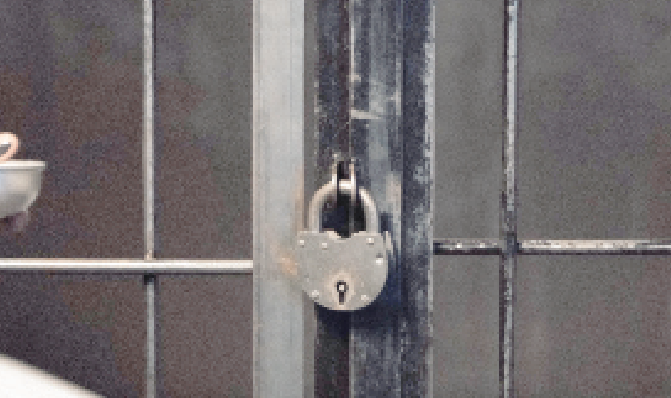Incarceration of juveniles should be last resort, says study

Criminal justice agencies have not managed to effectively address rehabilitation needs of children in conflict with the law, a new study has found out.
The study, Efficacy And Adequacy of Criminal Justice Agencies In Kenya: The Case of Children in Conflict With The Law by National Crime Research Centre (NCRC) established that programmes and /or services in place for addressing needs for children in conflict with the law are still inadequate to meet the needs for rehabilitation.
Some police stations are still keeping children and adults in same holding facility. To ensure safety and protection of minors, the study recommended that there is need for National Police Service to establish more child protection units and/or children friendly holding cells in all police station in the country, in addition to provision of conducive accommodation environment and child friendly amenities.
Punishment of children
The findings of this study were that punishment of children by way of institutionalisation should be the last resort. “This is because punishment does not reduce crime or rehabilitate the child in conflict with the law. Therefore, efforts should be made by the Judiciary towards placement of children in community based rehabilitation,” the study stated.
The study established that there is need for diversion of children cases from criminal justice system. “To achieve this, there is need for the Office of Director of Public Prosecutions (ODPP) to sensitise and encourage the community at large on alternative dispute resolutions mechanisms in addition to training the police and prosecutors on alternative deflection pathway of children cases from criminal justice system,” the study suggested.
Public officials
A total of 1,361 respondents were interviewed out of which 1,002 respondents were a sample of public officials dealing with children in conflict with the law. The officers were drawn from different institutions namely; Kenya Police Service, Probation and Aftercare Service, Office of the Director of Public Prosecution, Department of Children Services National Government Administrative Offices, Judiciary and Kenya Prisons Service. Additionally, a total of 359 children in conflict with law were interviewed. This category of respondents was drawn from Shanzu Boys Probation Hostel (Boys), Kakamega Rehabilitation Home (Boys), Shimo La Tewa Borstal Institution (Boys), Siaya Women Probation Hostel (Girls), Dagoretti Girls Rehabilitation Home(Girls), Kabete Rehabilitation Centre, Kamiti Youth Correctional Training Centre(Boys), Makadara Probation Hostel, Kamae Girls Borstal Institution(Girls), Kombewa Rehabilitation Home, Kisumu Children Remand Home, Wamumu Boys Rehabilitation Centre(Boys), Shikusa Borstal Institution(Boys), Kirigiti Girls Remand Home(Girls),Othaya Boys Rehabilitation School(Boys), Nakuru Remand Home,Kericho Rehabilitation Home, Nyeri Children Remand Home, Kimumu Boys Probation Hostel (Boys) and Kirigiti Remand Centre.
The public officials cited that they lack enough financial resources, equipment and needed infrastructure. The public officials also mentioned that there are inadequacies in capacity of trainers and vocational training programmes.
Specific programmes and/ or services mentioned that were not adequate were: vocational training and seminars offered in correctional and rehabilitation centres (66.7 per cent), victim and witnesses protection (66.7 per cent), diversion of cases programmes from criminal justice agencies (60 per cent ) and inadequate child protection units (56.8 per cent).
This study authored by Dickson Gitonga Njiru and Mark Shiundu Washisino further established that the main challenges faced by Criminal Justice Agencies in handling children in conflict with the law include inadequate funding (58 per cent) and inadequate skilled personnel on children matters (36.7 per cent). Other challenges includes; inadequate infrastructure and equipment (33.8 per cent), inefficiencies of Criminal Justice Agencies (15.9 per cent), low civic education, awareness and sensitisation (12.8 per cent) and neglect and rejection from parents and guardians (11.9 per cent).
It is recommended that the department of Probation and Aftercare Services enhance officers’ capacity, refurbish the current infrastructures that are in a dilapidated state and increase allocation to rehabilitation centres.
The public officials further cited the need to modernise and introduce new technical and vocational programmes. Therefore, Department of Children Services has been urged to recruit additional children officers, capacity build the officers in post and diversify vocational training needs.
The National Assembly was also put to task to enhance funding to criminal justice agencies, which will be critical in putting in place appropriate systems and structures for effectively and adequately handling and children in improving service delivery.
Sixty per cent of public officials’ respondents identified psycho-social support (guidance and counselling) as what was needed by children who are undergoing rehabilitation. Also 41.3 per cent indicated that the children need legal representation including legal awareness while, 40.5 per cent said that care and protection for children was equally important. Others included; provision of basic needs such as food, clothing, sanitary towels, diapers for young mothers, beddings and sanitation (37.5 per cent) and access to formal education.
Basic formal education (55.1 per cent) was mentioned by the majority of the children as what they need while in correctional and rehabilitation centers, provision of adequate basic needs and other personal effects (48.9 per cent), guidance and counselling (34.7 per cent), care and protection (33 per cent) and legal representation (27.3 per cent).
To address the issue of legal representation, the NCRC study recommended the need to strengthen the pro-bono legal representation services to children in conflict with the law. In particular, the National Legal Aid Services (NLAS) need to be strengthened.
To address witness and victim interference, the study called for the strengthening the Witness Protection Agency and Victim Protection Board as duty bearer agencies responsible for the witness and victim protection services.
The children undergoing corrective and rehabilitation lamented how they are faced with psychological distress, trauma and stigmatisation due to disconnect with family and community.












